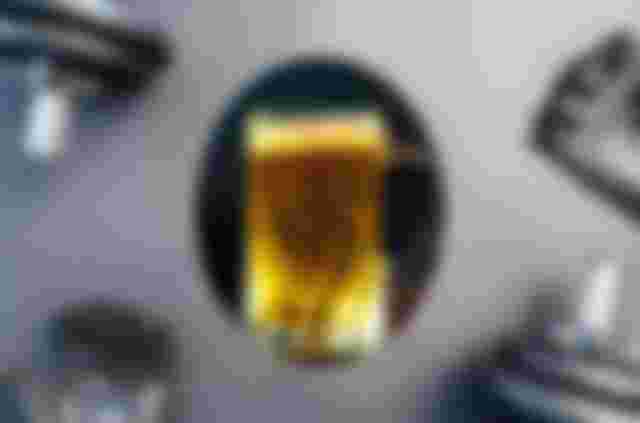It is well known that alcohol fights depression and relieves pressure.As early as more than 4,000 BC, alcohol has already appeared in people's lives, and in the ancient times alcohol was once considered to improve sports performance. The Olympic Games also discussed whether it should be classified as contraband with steroids and drug abuse. Alcohol can release cortisol, produce antidepressant, relax, and bring about temporary happiness, and even make people mistakenly think that they perform better.
But with the advancement of science, later research found that alcohol not only failed to make sports performance better, it even made it worse. The drinking habits of some professional athletes at home and abroad may come from coping with the pressure of sports career, so as to relieve pressure, and sometimes even abuse drugs or calm drugs.
Alcohol does not make sports performance better, it only makes performance worse.
Alcohol is absorbed by the human body very quickly, it starts to be absorbed after entering the tongue, and flows through the body through the blood, acting on the central nerve and directly into the brain to play a role. In addition, alcohol can reduce the ability of aerobic exercise, diuresis, increase dehydration, and reduce the available sugars in the blood, which is greatly detrimental to the formation of muscles. In all respects, it is almost useless for sports performance.

Impact of alcohol on sports performance is more harmful than good, and the potential harm is roughly as follows:
Decreasing physical endurance: Alcohol contains calories. After drinking, it will affect the body's absorption of heat from other foods, leading to excessive energy loss and reduced body endurance. At the same time, exercise itself will speed up heartbeat and blood circulation, but alcohol will make heartbeat. Accelerating, but breathing slows, which affects physical endurance.
Affect muscle growth: Many people exercise to increase muscle, especially weight training; but heavy drinking will reduce glucose synthesis in the body, affect muscle growth, and fail to achieve the expected muscle gain.
Increase the risk of muscle injury: After intense exercise or excessive exercise, the muscle fibers will have minor injuries, resulting in delayed muscle soreness in the body, which is the common muscle soreness that occurs the next day after exercise. Exercise after drinking will relax people, reduce body alertness, do not realize that the body may have been injured, continue to exercise intensively, and aggravate the degree of muscle injury.
Reduce aerobic fitness: Good cardiopulmonary function means that the number of heartbeats is low, but each heartbeat can produce enough blood to be delivered to the whole body. Some athletes have a heartbeat of only 50 times per minute. But alcohol can interfere with cardiopulmonary function and directly affect athletic performance.
Reduce reaction ability: Alcohol can make people relax, but excessive alcohol will directly affect the body's judgment and response, especially sports such as running or cycling around the island, it is easy to encounter unknown conditions and increase the chance of injury.
Affecting body repair: After intense exercise, sleep can help the body rest and rest. At this time, the liver will repair the damaged tissues of the body. But the whole body is more sore.
Easy muscle cramps: Exercise after drinking increases the potential risk of muscle cramps. One of the causes of muscle cramps during exercise is lactic acid accumulation, and one of the products of alcohol metabolism is lactic acid.
Accelerate water loss: alcohol diuresis, coupled with sweating and skin moisture evaporation, make the body more dehydrated, severe or even dehydrated; especially when the weather is too hot or endurance sports, dehydration will further cause electrolyte and vitamin loss. Loss of attention will follow, and muscle cramps are also easy.
Before exercise: Avoid drinking alcohol After exercise: add water, sports drinks
When exercising, the best state should be zero alcohol in the body. Even with one glass of beer, it takes 2 hours for the average person to metabolize alcohol. But if the general public wants to exercise and can't help but want to have a drink
If you still enjoy to during and workout, train etc - you can master the following points to reduce the impact of alcohol on sports performance:
Do not drink alcohol before intense exercise or 2 days before the competition.
Do not drink hard alcohol within 6 hours before exercise , because hard alcohol reacts quickly and lasts longer.
After drinking, do not engage in excessively intense, high-intensity, and exhausting cardiopulmonary exercises.
After drinking, avoid engaging in sports that are prone to sudden conditions or collisions , such as cycling around the island, running, football, volleyball, etc., because alcohol can reduce reaction ability and judgment.
Strengthen hydration or sports drinks.
Images for this article were taken from https://www.pexels.com

Alcohol is not good for health also... It damage livers.. Causes heat disease. It doesn’t relief From depression rather helps to forget it for a while, which is not a solution. Alcohol should be avoided.